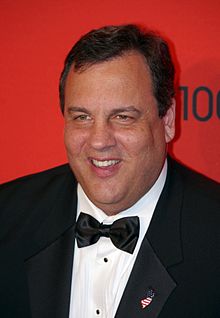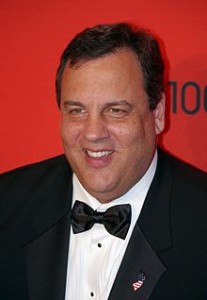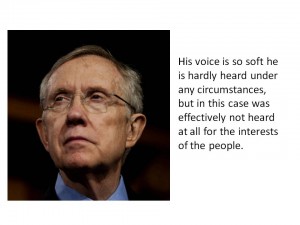According to Lee Fang’s “Pensiongate” in The Nation, by the end of his first term as New Jersey (NJ) governor, Chris Christie placed state retiree assets in the hands of several hedge fund managers who have backed his political career, seeming to provide huge returns for comparatively modest campaign contributions to the Republican Governor’s Association (RGA).
You might say, “So what. It’s an investment.” Perhaps most of us do not know the truth about retirement funds. Retirement funds need to be kept safe, like investing in safe government Treasury Bills or low risk mutual funds. We have an issue like that regarding social security funds. Charlatans like Paul Ryan – and George W. Bush before him – still seek to privatize the national pension fund, social security, by putting it in the hands of Wall Street. Good for Wall Street; bad for social security and retirees.
Privatization schemes are at worst a vicious scam, at best a strategy for profit. Even President Obama is getting in the act in terms of public education. He has his own version of “No Child Left Behind,” called “Race to the Top,” a program pushed by prominent education fronts. Both programs promote privatization of public education, including charter schools, all with an emphasis on testing. It appears to be a con game played by those with connections. Agents of the connected corporations demonize public education in its various forms. Student achievement tests are compared to students of other countries, showcased as proof of public school failures, though privatized schools don’t share in the blame since students are often cherry-picked.
Privatization is led and influenced by corporations which have convinced even worthy do-gooders like the Gates and their foundation – at least for education issues. Conservatives have enough amperage to control the debate. For example, the 2010 Program for International Student Assessment (PISA) put Shanghai at the top and US fifteen-year-olds well down the list, but American schools with less than 10% of students impoverished were equal or superior. You can easily conclude that this competition exposes poverty as not conducive to learning, not public education. Furthermore, affluence and a culture that pushes education helps, not privatization.
Chris Christie plays the same game regarding pension investments. He vilifies public services and pension investment to offer privatization as an alternative, which, in effect, leads to the fleecing of public servants. It’s another example of Wall Street hucksters taking a wider cut of our pie, while offering very small investments of campaign contributions. Like George W. Bush before him, Christie seems to be a user. He uses his position in government, its power, and its tools – Port Authority and Hurricane Sandy funds, for example — to further his personal empire. However, Bridgegate seems to have slowed down some “crony” endeavors.
A wily politician, in his first term as governor, Christie connected with power brokers on Wall Street. He took the podium of the Manhattan Institute and railed against the “out-of-control” state public pension system. Paul Singer, the hedge fund manager who chairs the Manhattan Institute, had given a measly $100,000 to the Republican Governors Association (RGA) in 2009, which paid for a barrage of political ads for Christie. By all appearances, Singer’s return on that investment was a contract to manage $200 million in NJ public pension funds.
Last year, Singer upped the ante. The RGA got $1.2 million from Singer. Another hedge fund manager, Daniel Loeb also won big contracts to manage the public pension fund.
Chris Christie managed to lower expectations among state workers by “reforming” the public pension system. He increased the retirement age for some, cut benefits, and adjusted how state employees paid into the plan. Not advertised was how more money went into outside managers like Singer and less into lower-risk investments like treasury notes or the S&P 500.
RGA showered Christie with almost $7 million in his two campaigns for governor. As for Daniel Loeb, who contributed a pittance of $250,000 last year, Loeb’s hedge fund, Third Point, scored a contract to manage $100 million in state retiree funds.
Hedge funds and other so-called “alternative investments” performed worse overall than more conservative strategies like Treasury notes or the S&P 500. Industry reports say that NJ has the second-largest allocation in the country of state retiree money managed by hedge funds. In Christie’s first term as governor, his Division of Investment planned to double its allocation for “alternative investments” by moving 33.2% of the $74.7 billion fund into a mix of hedge funds, private equity firms and real estate. Profit on this money was huge.
Last year the NJ pension program delivered a return of 11.79% compared to the pension median of 16.1%. Fees for these “alternative investments” included 2% management fees on top of a 20% performance fee. The fees accounted for much of the lower investment returns.
Chris Tobe, a former trustee of Kentucky Retirement Systems, speculated that outside money managers for the alternative investment program earned around $1.2 billion in management and performance fees from NJ’s public pension plan in 2013 alone.
Critics say — with more and more evidence since Bridgegate — that the Christie administration’s management of the state pension program is characteristic of a governor who seeks to reward his friends, while sometimes ruthlessly punishing his opponents.
This is another example of Christie enterprises, all which seem to benefit Christie and his friends. Taking stock so far, he used taxpayer (NJ & US) resources, laundering funds through the Port Authority; exploited Hurricane Sandy funds for his political agenda; and appeared to use NJ state pension funds to reward his hedge-fund benefactors.
Recently he lined up with other Republican supplicants for funding by billionaire Sheldon Adelson.
How will his lineup before the voters go?
Chris Christie: User and Exploiter?,




